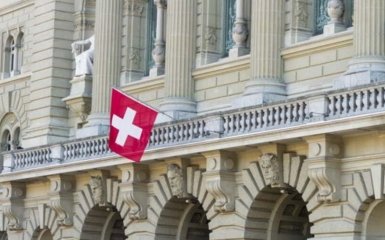Switzerland joined the 14th package of European sanctions against Russia in response to Russia's military aggression against Ukraine.
Points of attention
- The new EU sanctions, joined by Switzerland, cover businessmen, propagandists, members of the armed forces and the judiciary, as well as those responsible for the deportation of Ukrainian children.
- The European Union has already implemented 14 packages of sanctions against Russia for its invasion and actions that threaten the integrity of Ukraine.
- EU sanctions include a ban on new investment and the provision of services to complete Russian LNG projects such as Arctic LNG 2 and Murmansk LNG.
- Restrictions are also being introduced on the import of Russian liquefied gas through EU terminals that are not connected to the gas system.
Switzerland introduced new sanctions against Russia
On June 24, the EU adopted new measures against Russia as part of the fourteenth package of sanctions. For its part, on July 9, Switzerland introduced sanctions within its jurisdiction against another 69 individuals and 86 legal entities.
The new sanctions are aimed at business people, propagandists, representatives of the armed forces and the judicial system, persons responsible for the deportation of Ukrainian children, and employees of the FSB.
Among the organizations that have come under sanctions again are, in particular, companies working in the Russian defence sector and companies in the financial and trade sectors that are actively involved in circumventing sanctions.
More than 2,200 individuals and legal entities were included in the sanctions lists.
EU sanctions against Russia
Since the beginning of the full-scale invasion, Russia has already suffered 14 packages of sanctions from the European Union for the war it started in Ukraine.
On June 24, another package of sanctions was adopted, which affected Russian propagandists, actors, singers, the mother of the head of Chechnya, Ramzan Kadyrov, as well as employees of the Russian FSB special services.
The 14th package of EU sanctions includes restrictive measures against another 116 individuals and legal entities responsible for actions that undermine or threaten Ukraine's territorial integrity, sovereignty and independence.
EU sanctions include measures against Russian liquefied gas. In particular, in order to ensure that EU facilities are not used to transship Russian liquefied natural gas (LNG) to third countries, and thus reduce the significant revenues that Russia receives from the sale and transportation of LNG.
This applies to both ship-to-ship and ship-to-shore transhipment and transhipment operations, and it does not affect imports; it only re-exports to third countries through the EU. The European Commission will monitor the implementation and development of this decision and may propose mitigating measures if necessary.
In addition, the EU will ban new investments, as well as the provision of goods, technologies and services to complete the construction of LNG projects, such as "Arctic LNG 2" and "Murmansk LNG". Restrictions are being introduced on the import of Russian LNG through EU terminals not connected to the gas system.
More on the topic
- Category
- Economics
- Publication date
- Додати до обраного


